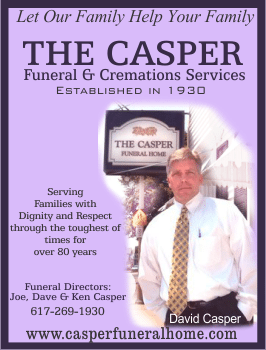Suffolk County District Attorney Dan Conley this week welcomed new community partners to an ambitious diversion project, hoping to double the capacity of a program that allows juveniles charged with some serious offenses to get their lives back on track without incurring additional entries on their records. Conley’s office launched the Juvenile Alternative Resolution pilot project in February 2017 with half a dozen community-based agencies that provide individualized services to Boston’s youth. In May, the partner agencies began accepting juveniles who faced delinquency charges in the Boston Juvenile Court and showed a moderate to high risk of re-offending. And yesterday, Conley welcomed a new batch of agencies to the team.
“Historically, juvenile diversion in Massachusetts has been geared toward first-time and low-level offenders, and it’s been limited in the services available to promote post-diversion success,” Conley said. “We envisioned something more ambitious – something that would re-direct the lives of young people charged with more serious offenses, even high-risk teens. We sought out partners who could offer individualized services for a wide range of needs. And our shared goal across agencies was to divert young adults outward, away from the criminal justice system, instead of upward and deeper into it.”
By March of this year, 45 juveniles had entered the JAR program and received supervision, support, and services through one or more community partner agencies. Of that number, 12 successfully completed the program and 31 are on track to do so. Together, the 45 participants accounted for 100 offenses. Almost two-thirds of those offenses were classified as “crimes against the person,” including assault and battery, assault and battery with a dangerous weapon, and unarmed robbery. Some were as young as 11, but about half were 16 or 17 years old. About 60% of the juveniles were from Dorchester or Roxbury, about two-thirds were male, and almost all were youth of color.
Participants are also showing significant drops in the risk and need factors they had when they entered, Conley said, reflecting a course correction in the trajectory of their lives. Because JAR-eligible delinquency complaints are placed on hold upon entry to the program and dismissed upon completion six to nine months later, the cases never appear on the participants’ juvenile records. By expanding the available partners, Conley hopes to double the program’s capacity in the year to come – and continue to accept even juveniles who have prior system involvement and face moderate- to high-level charges. The goal, he said, was to juvenile involvement in the criminal justice system in Suffolk County – and the barriers to social, academic, and employment success that can follow.
“We were warned that there was a risk in taking this older, more experienced cohort into the program,” Conley said, “but what we’ve seen thus far convinces me that the rewards outweigh that risk.” In addition to formal diversion through the JAR program, first-time and low-level juvenile offenses are informally diverted every day by Suffolk prosecutors. Throughout the year, almost 60% of the county’s delinquency complaints were diverted, with diversions outnumbering youthful offender indictments by more than 10 to one. “That’s as it should be,” Conley said. “Some crimes are extremely serious and some offenders pose a danger to the community. But most kids and teens come to us with minimal records for minor offenses – better suited to the justice of an angry parent than the Juvenile Court. The JAR program is for youth in between, whose actions are more serious but don’t include gun violence, sexual assault, or serious bodily injury.”
The first group of community partner agencies included Action for Boston Community Development’s Changing Tracks Initiative, the Justice Resource Institute SMART Team, MissionSAFE, the Salvation Army’s Bridging the Gap program, the RFK Children’s Action Corps Detention Diversion Advocacy Program, and UMass Boston. Yesterday, Conley welcomed new partners to the fold – including a collection of youth service programs offered through Action for Boston Community Development, the Charlestown Coalition’s Turn It Around program, More Than Words, and YouthConnect.
“Every life is a journey, and as youth service providers you’re the map and compass these kids need,” Conley told the assembled group. “We’re changing those young lives today, but we’re changing outcomes tomorrow that will strengthen families and communities for years to come. We’re making Boston a safer, fairer place. And that’s a legacy we can all be very proud of.”












